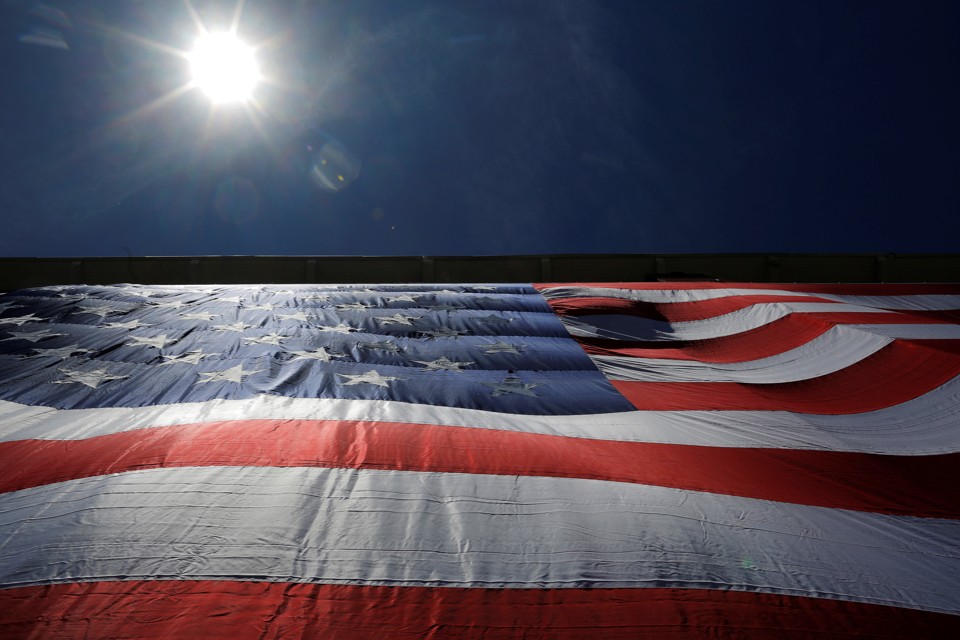The Souring of American Exceptionalism
Commitment to liberalism once distinguished the United States. Now it stands apart for the disregard of its elites for the troubles of so many of their fellow-citizens.

This is a Fourth tinged with sad ironies. Can we put the occasion to any good use? Near the end of a much more terrible national ordeal, Abraham Lincoln urged Americans: "Let us, therefore, study the incidents of this, as philosophy to learn wisdom from.” Good advice. We should try.
A traditional theme of the rhetoric of the Fourth is the celebration of “American exceptionalism.” That phrase has acquired a boastful overtone, which is why President Obama famously handled it so diffidently. "I believe in American exceptionalism, just as I suspect that the Brits believe in British exceptionalism and the Greeks believe in Greek exceptionalism."
“Why is there no socialism in the United States?” asked a Marxist German in 1906. According to Marxist ideology, the United States—as the most highly developed capitalist nation—should have led the way toward proletarian class-consciousness. When that did not happen, Marxists squirmed to explain the deficiency away. Non-Marxists took up the inquiry after World War II. With a Labor government nationalizing railways and steelworks in Britain—Germany shattered by Nazism—and communism holding Russia, China, and half of Europe in its grip, the United States stood out as a lonely beacon of liberalism. Again America seemed a special case that needed explaining. This time the explanations came from fellow-liberals who admired the American exception, which is how the phrase acquired its secondary and more positive meaning.
Over the next decades, however, as both democracy and market economics became accepted facts across the developed world, the question changed form. Even pre-Trump, it was hard to argue that the United States was a consistently more liberal society than Germany or Britain, let alone Denmark or Canada. In some ways, yes: Free speech is more protected in the United States than other places. In some ways, no: The right to vote is better protected almost everywhere else in the democratic world than in the United States.
America’s uniqueness, even pre-Trump, was expressed as much through negative indicators than positive. It is more violent than other comparable societies, both one-on-one and in the gun massacres to which the country has become so habituated. It has worse health outcomes than comparably wealthy countries, and some of them most important of them are deteriorating further even as they improve almost everywhere else. America’s average levels of academic achievement lag those of other advanced countries. Fewer Americans vote—and in no other democracy does organized money count for so much in political life. A century ago, H.L. Mencken observed the American “national genius for corruption,” and (again pre-Trump) Transparency International’s corruption perceptions index ranks the U.S. in 18th place, behind Hong Kong, Belgium, Australia, Canada, the Netherlands, the United Kingdom, Germany—never mind first-place finishers Denmark and New Zealand.
That result forces a reshaping of the question of American exceptionalism.
“Why was the United States vulnerable to such a person when other democracies have done so much better?” Part of the answer is a technical one: The Electoral College, designed to protect the country from demagogues, instead elected one. But then we have to ask: How did Trump even get so far that the Electoral College entered into the matter one way or another?
Thinking about that question forces an encounter with American exceptionalism in its most somber form. If, as I believe, Donald Trump arose because of the disregard of the American political and economic elite for the troubles of so many of their fellow-citizens, it has to be asked again: How could the leaders of a democratic country imagine they could get away with such disregard?
Nor has that elite learned its lessons. Look at the progress of the Republican health-care bill through the House and Senate. The authors of the bill are acutely aware of how despised it is, how much more despised it will be once it goes into effect: That’s precisely why they have broken through all normal legislative processes, why they do not hold hearings, why they conceal its elements, why they outright lie about its effect. Even so, only fewer than one in five Americans support what they wish to do. Rather than make any attempt to build consensus—never mind to make adjustments that could gain broader consent—a small leadership group is pushing through. Some of those leaders are dogmatically sure that they are correct, no matter what anybody else thinks. Others are heedless of consequences for anyone but their supporters and donors. Still others feel cynically certain that if they can prevail now against the numbers, they can use the inertia of the American system to prevent the large majority who opposed them from reversing their actions.
Only in America, as the saying goes. This Fourth of July, however, it is harder to say with pride.
No comments:
Post a Comment